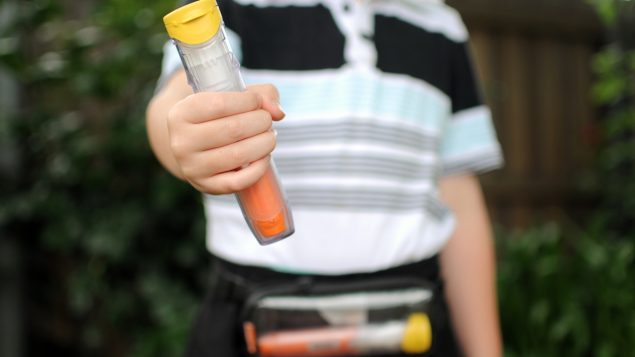Allergic reactions to food can be dangerous and even cause death, and an international team led by a Canadian university has developed new guidelines to prevent and manage such reactions in schools and child care centres.
From one to 10 per cent of infants and preschool children have a food allergy as do one to 2.5 per cent of children of school age. Researchers say that about one in ten allergic reactions and the life threatening extreme reaction called anaphylaxis occur at child care centres or schools. Most occur elsewhere.
Anxiety and fear may limit children
“Anxiety and fear about the risk of accidental exposure to food allergens, and the burden of managing that risk, may limit children’s participation in day-to-day activities. Children with food allergy are also at risk of allergy-related bullying,” note the guidelines.
Little evidence that bans work
Many schools in Canada ban peanuts and tree nuts because they are the most common causes of severe allergic reactions. However, a person may have just as deadly an allergy to different foods such as milk, eggs, shellfish and many others. These practical guidelines recommend there be no site-wide food prohibitions except in limited special circumstances. Research has found little evidence that these kinds of food bans work. Instead, it is recommended that other common-sense strategies be used to reduce the risk of reaction, such as providing adult supervision at snack and meal times and avoiding allergens in curriculum and field trip activities, and promoting handwashing.

The guidelines include recommendations on the storage and use of rescue medication for severe allergic reactions. (iStock)
Staff training recommended
“It’s not possible to totally remove the risk of allergic reactions,” said Susan Waserman, chair of the guidelines panel, an allergist and professor of medicine at McMaster University in the province of Ontario. “However, interventions based on evidence may help community members manage the risk and support allergic students.”
The panel suggests child care centres and schools provide training for teachers and other personnel in the prevention, recognition and treatment of allergic reactions to food. A medication called epinephrine can counter anaphylaxis but the panel says it should only be used when anaphylaxis is suspected, and not for a suspected allergic reaction. Nor should it be administered in cases where no signs of an allergic reaction has developed, even if a child has eaten a food to which they have a known allergy.
It is suggested that child care centres and schools stock unassigned epinephrine autoinjectors on site instead of requiring students to submit personal autoinjectors to be stored on site for school use.
Action plans recommended
It is also suggested that parents of students with a diagnosed food allergy be required to provide an up-to-date allergy action plan and that schools and child care centres implement site-wide protocols for the management of suspected allergic reactions for those student with no allergy action plans on file.
The panel making these recommendations included 22 health-care professionals, school administrators, and parents of children with and without food allergy, along with a team of six researchers with methodology expertise. They conducted a systematic literature review of practices for managing food allergy in schools. They found a lack of high-quality evidence, so the guideline recommendations are graded as conditional. However, they are endorsed by the Canadian Society of Allergy and Clinical Immunology; the U.S. Allergy and Asthma Network; American Academy of Allergy, Asthma and Immunology; American College of Allergy, Asthma and Immunology; and the World Allergy Organization.







For reasons beyond our control, and for an undetermined period of time, our comment section is now closed. However, our social networks remain open to your contributions.